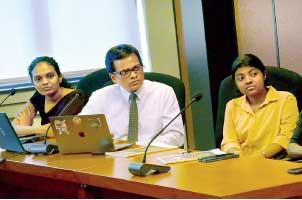Reply To:
Name - Reply Comment
Revisiting import controls on food products is particularly important due to their impact on urban and suburban households, a study by the Institute of Policy Studies (IPS) said, as these controls exacerbate food costs and shortages, burdening households, specially those with low incomes.
The study titled ‘Import Controls in Sri Lanka: Political Preference and Incentive Distortions’ recommends a gradual phase-out of import controls, starting with intermediate and essential nutritious food items.
It emphasises the importance of removing import controls on consumer goods, including food, to encourage resource allocation towards export-oriented industries and alleviate domestic price inflation. The report, authored by the IPS researchers Dr. Asanka Wijesinghe, Chathurrdhika Yogaraja and Nilupulee Rathnayake, stressed that the lifting of import controls on consumer goods would mitigate the burden on low-income urban and suburban households, safeguarding their nutritional security.
The study also reveals that the government’s import control policy preference favoured less complex products, consumer goods and food items, which unintentionally created an incentive structure for import substitution, even without a protectionist intent.
Persistent import controls on food products and low-tech manufacturing products such as consumer electronics inflate domestic prices and create opportunities for higher profit margins, the study reveals.
“As these products are within the set of products that are easily substitutable for a country like Sri Lanka, which has a comparative advantage in low-tech manufacturing and a significant labour force in agriculture, import substitution might happen even without a policy intent,” the authors noted.Battling an unprecedented economic crisis that overlapped the COVID-19 pandemic, Sri Lanka resorted to strict import controls since early 2020. These measures gradually encompassed 31 percent of total imports by September 2022, with the intention of reducing foreign exchange leakages on non-essential imports.
 |
| From left: Nilupulee Rathnayake, Dr. Asanga Wijesinghe and Chathurrdhika Yogaraja present the findings of the study to economists and journalists PIC BY WARUNA WANNIARACHCHI |